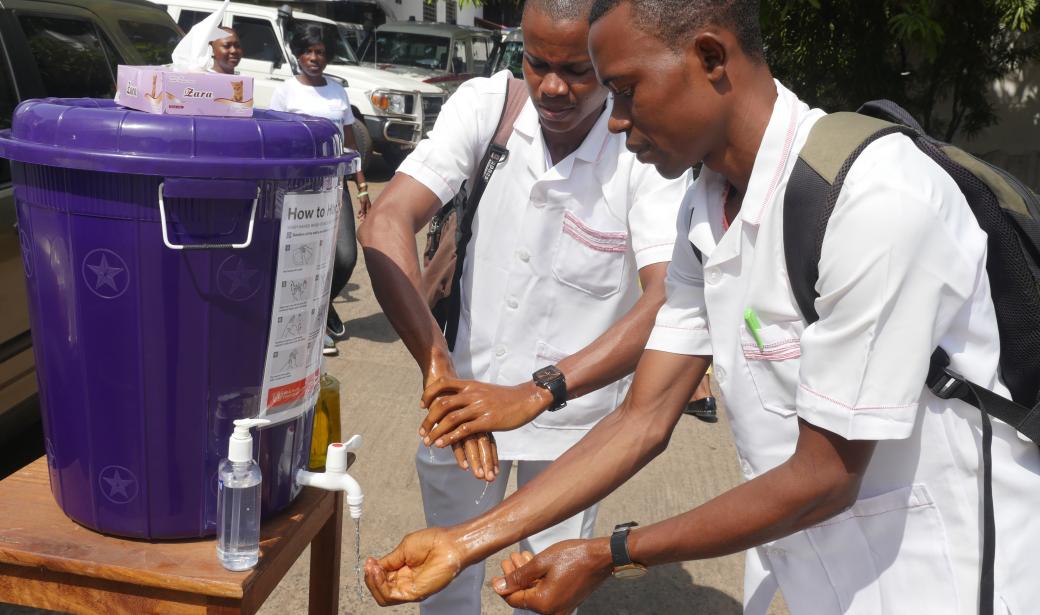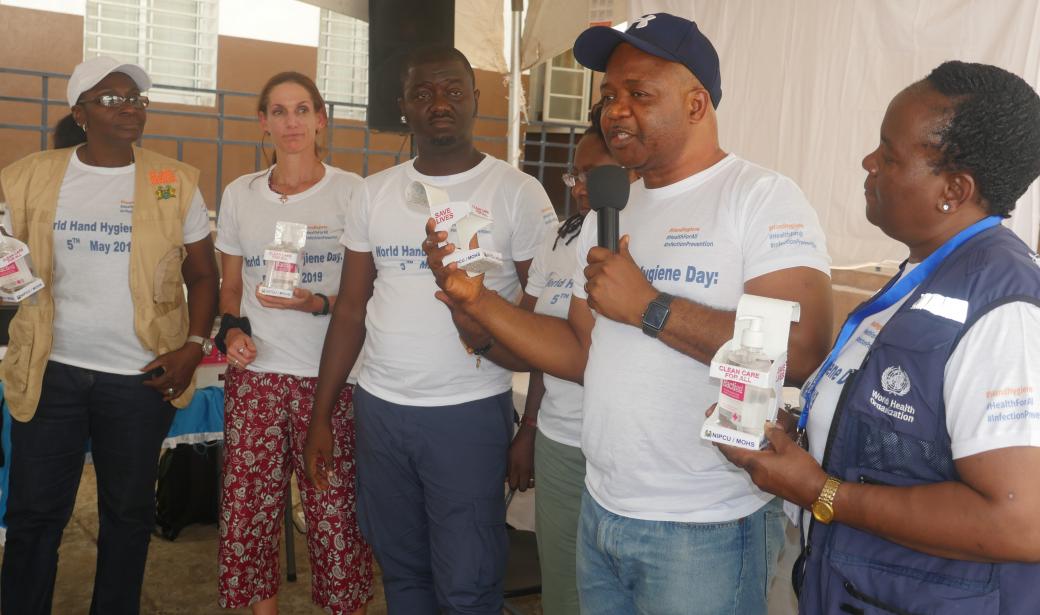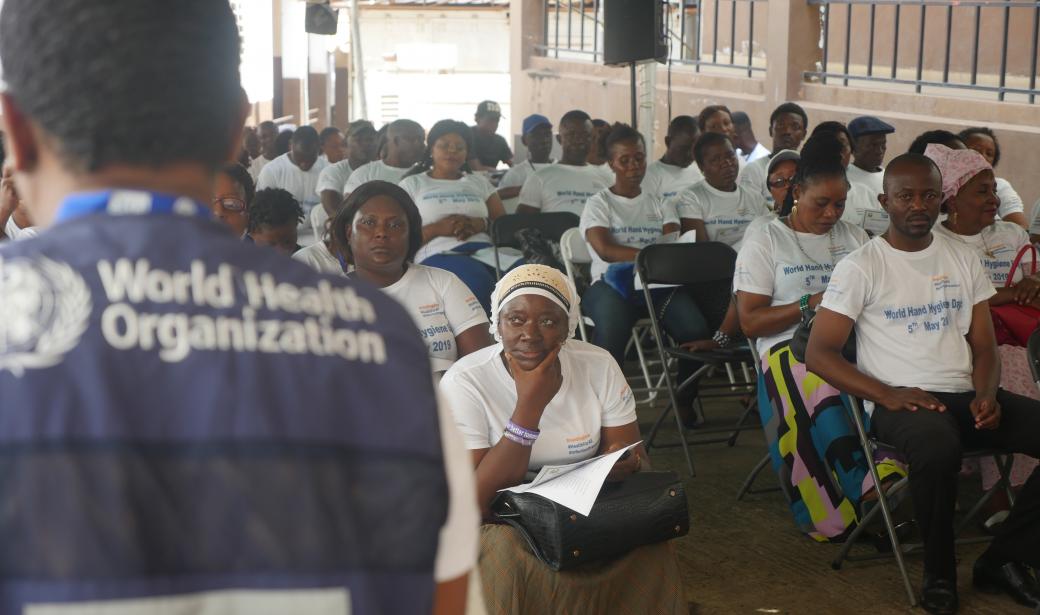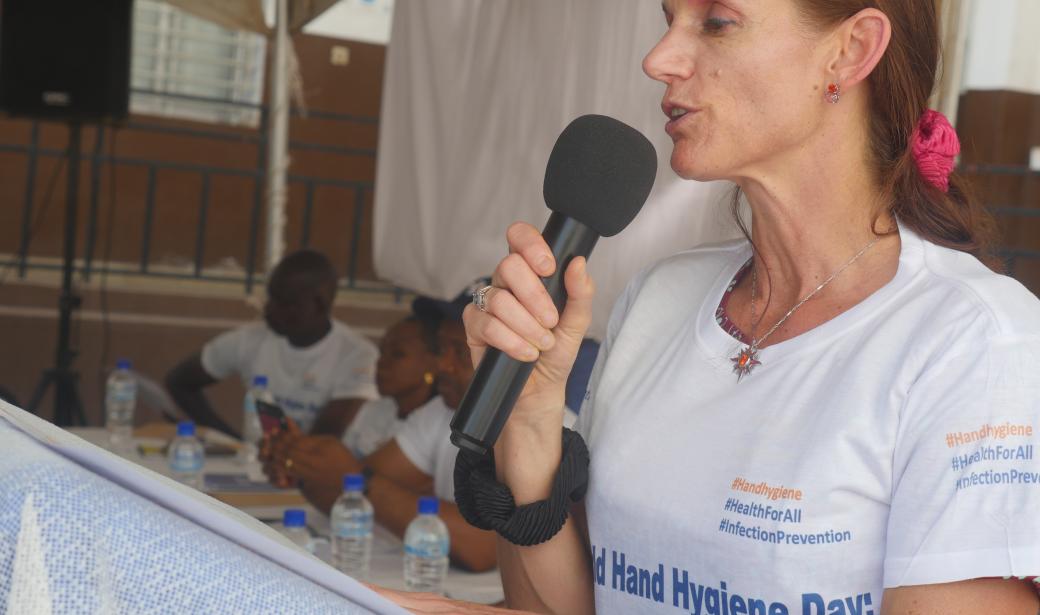As Sierra Leone joined a network of over 180 countries around the world to commemorate World Hand Hygiene Day on the theme “Clean care for all – it’s in your hands”, the Ministry of Health and Sanitation in collaboration with WHO, CDC and other partners has launched a week of advocacy to promote and sustain hand hygiene practices among healthcare workers in Sierra Leone.
The week of clean care campaign aims to improve ongoing efforts at national and sub national levels to improve and sustain hand hygiene practices among health professionals, making information available on health care-associated information at health facility, community and district levels
The World Health Organization is leading a global hand hygiene campaign in collaboration with other partners and governments to raise awareness and the global profile of the importance of hand hygiene in health care settings and to also garner public support for improved hand hygiene practices worldwide.
Hand hygiene and quality of health care
Poor hand hygiene practices is known to be a major contributor to health care-associated infection including the burden of surgical site infection. Worldwide, it is estimated that one in 10 patients get an avoidable infection while receiving care.
In Sierra Leone hand hygiene and infection prevention and control gained a particular prominence in the advent of the 2014 Ebola outbreak which killed over 4,000 people including more than 200 health workers. The infection and death of the health workers were largely attributed to poor hand hygiene practices.
Speaking at the event to mark this year’s Hand Hygiene Day commemoration, Dr Anna Maruta, WHO Sierra Leone Infection Prevention and Control Specialist urged the partners to invest in quality health for all through hand hygiene, which she said is “a cost-effective measure to reduce hospitalization time and healthcare-associated infections”.
Meanwhile the Director of Health Security and Emergencies at the Ministry of Health and Sanitation reaffirmed the commitment of the government in ensuring that the healthcare workforce, patients, and the community are protected from healthcare associated infections. “We all need to get involved to contribute to achieving quality health care in our institutions. We can all do our part to improve infection prevention, WASH, reduce Antimicrobial Resistance thereby promoting patient safety and quality of care in our healthcare facilities.
WHO is providing technical and financial support to the Ministry of Health and Sanitation to implement local and sustainable IPC initiatives in the country. These include supporting the Ministry to institutionalize IPC guidelines strategies and capacity development of health professionals. The Organization has trained health workers to enhance capacity of the country to commence, for the first time, local production of Alcohol Based Handrub. This support aims to reduce the costs for handrub importation and to ensure ready availability of the product to every health worker at all time.
Clean care for universal health coverage
Considering the priority of hand hygiene improvement in the broader context, this year's week of advocacy campaign aims to ensure clean care by all health care providers for the attainment of Universal Health Coverage for everyone, everywhere
Communications Officer
Email: gboriesa [at] who.int (gboriesa[at]who[dot]int)
Tel: +232 76 77 78 78






